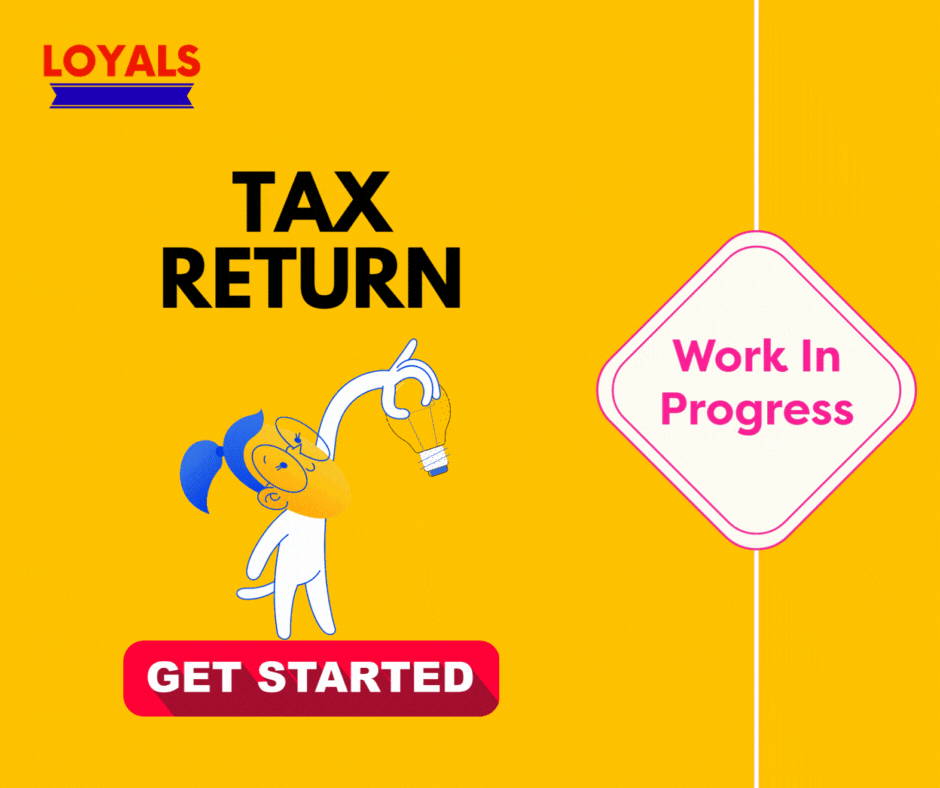What is VAT and why is it important for UK businesses to understand it?
Value Added Tax (VAT) is a consumption tax that is applied to goods and services in the United Kingdom. It is a tax that is added to the price of goods and services and is typically passed on to the consumer. The government sets the VAT rate, which is currently at 20%.
VAT is an important tax for UK businesses to understand because it affects nearly all aspects of running a business. Businesses that are registered for VAT are required to charge VAT on their products and services, and they can also claim back the VAT they have paid on their own business expenses.
Failing to understand VAT can result in businesses making costly mistakes, such as not registering for VAT when they should have, or not claiming back the VAT they are entitled to. Additionally, non-compliance with VAT regulations can result in penalties and fines. Therefore, it is essential for businesses to understand VAT and comply with VAT regulations.
As LOYALS VAT expert, we understand the complexities of VAT and can assist businesses in understanding and complying with VAT regulations. Our team can help businesses navigate the VAT registration process, ensure that they are charging and claiming the correct amount of VAT, and assist with VAT returns and compliance. Contact us today to learn more about how we can assist you with VAT.
When should I register for VAT?
As a professional LOYALS VAT expert, I understand that one of the most important questions for businesses is when they should register for VAT. The answer to this question depends on the threshold limits for VAT registration. In the UK, the current threshold limit for VAT registration is £85,000. This means that if your business's taxable turnover exceeds £85,000, you are legally required to register for VAT.
Are there any downsides to VAT registration?
It's important to note that there are some downsides to VAT registration. One of the main downsides is the additional administrative burden that comes with VAT registration. Businesses will need to keep records of all VAT transactions, and they will need to submit VAT returns on a regular basis.
How does VAT registration affect my business's cash flow?
Another downside to VAT registration is that it can affect your business's cash flow. When a business is registered for VAT, they will need to charge VAT on their products and services, which can increase the overall cost to the consumer. However, businesses can claim back the VAT they have paid on their own expenses, so it's important to understand the cash flow implications of VAT registration.
Overall, VAT registration is an important step for businesses whose taxable turnover exceeds £85,000, however, it's crucial to understand the downsides and the effect on cash flow. As a professional LOYALS VAT expert, we can help businesses navigate the VAT registration process, and help them understand the impact on their cash flow. Contact us today to learn more about how we can assist you with VAT registration and compliance.
Why should I register for VAT?
As a professional LOYALS VAT expert, I understand that there are several reasons why a business should register for VAT. One of the main benefits of VAT registration is that it can increase the credibility of a business. VAT registration is a sign that a business is established and financially stable. Additionally, VAT registration can also increase the competitiveness of a business by leveling the playing field with their competitors who are also registered for VAT.
How can VAT registration benefit my business?
VAT registration can benefit a business in several ways. Firstly, businesses can claim back the VAT they have paid on their own expenses. This can help reduce the overall cost of running a business. Secondly, businesses that are registered for VAT can also charge VAT on their products and services, which can increase their overall revenue.
Are there any downsides to VAT registration?
While there are many benefits to VAT registration, there are also some downsides. One of the main downsides is the additional administrative burden that comes with VAT registration. Businesses will need to keep records of all VAT transactions, and they will need to submit VAT returns on a regular basis. Additionally, VAT registration can increase the overall cost of a business's products and services, which can make them less competitive in the market.
How does VAT registration affect my business's cash flow?
As a professional LOYALS VAT expert, I understand that VAT registration can have an impact on a business's cash flow. When a business is registered for VAT, they will need to charge VAT on their products and services, which can increase the overall cost to the consumer. However, businesses can claim back the VAT they have paid on their own expenses, which can help reduce the overall cost of running a business. This means that it's important to understand the cash flow implications of VAT registration and how it affects your business. Our team of experts can help you understand the implications of VAT on your business cash flow and assist you in navigating the process.
How do I register for VAT?
As a professional LOYALS VAT expert, I understand that registering for VAT can be a complex process. The first step in registering for VAT is to determine if your business meets the threshold limit for VAT registration, which is currently £85,000. If your business's taxable turnover exceeds £85,000, you are required to register for VAT.
What information do I need to provide for VAT registration?
In order to register for VAT, businesses will need to provide certain information to HM Revenue and Customs (HMRC). This includes the business name and address, the nature of the business, and the effective date of registration. Additionally, businesses will also need to provide their contact details and the names and addresses of any business partners or directors.
What are the steps to registering for VAT?
The steps to register for VAT include:
- Determine if your business meets the threshold limit for VAT registration.
- Gather all the necessary information for registration.
- Submit the VAT registration application to HM Revenue and Customs (HMRC)
- Receive your VAT registration certificate and VAT number
- Begin charging and accounting for VAT on your sales and purchases.
How long does the VAT registration process take?
The VAT registration process typically takes around 14 working days from the date of submission, however, it can take longer if HM Revenue and Customs (HMRC) require additional information. It's important to note that businesses are required to register for VAT within 30 days of exceeding the registration threshold.
How do I charge and account for VAT after registering?
As a professional LOYALS VAT expert, I understand that charging and accounting for VAT can be a complex process for businesses. Once a business is registered for VAT, they are required to charge VAT on their products and services, and they can also claim back the VAT they have paid on their own expenses.
How do I charge VAT on my products or services?
When charging VAT on your products or services, it's important to ensure that you are charging the correct VAT rate. The current standard VAT rate in the UK is 20%. Businesses should also ensure that they are displaying the VAT inclusive price and the VAT amount separately on their invoices.
How do I submit my VAT returns?
VAT returns are typically submitted to HM Revenue and Customs (HMRC) online through the government gateway. Businesses will need to submit their VAT returns on a regular basis, typically every quarter. The deadline for submitting VAT returns is typically one calendar month and seven days after the end of the VAT period.
How do I keep records of VAT transactions?
It's important to keep accurate records of all VAT transactions, including sales invoices, purchase invoices, and any other relevant documents. These records will be required to support any VAT claims made on business expenses and to enable the correct amount of VAT to be reported on the VAT return.
As an expert LOYALS VAT expert, we understand the complexities of VAT and can assist businesses in understanding and complying with VAT regulations, including charging and accounting for VAT, submitting VAT returns, and keeping records of VAT transactions. Contact us today to learn more about how we can assist you with VAT compliance.
Why is it important to understand the VAT registration process and comply with VAT regulations?
As a professional LOYALS VAT expert, I understand that understanding the VAT registration process and complying with VAT regulations is crucial for the success of any business. Failing to understand VAT and comply with regulations can result in businesses making costly mistakes, such as not registering for VAT when they should have, or not claiming back the VAT they are entitled to. Additionally, non-compliance with VAT regulations can result in penalties and fines. Therefore, it is essential for businesses to understand VAT and comply with VAT regulations.
How can LOYALS expert team assist in VAT registration and compliance?
Our team of experts can help businesses navigate the VAT registration process and ensure compliance with VAT regulations. We can assist with determining if a business meets the threshold for VAT registration, provide guidance on what information is required for registration, and help businesses understand the implications of VAT registration on their cash flow. Additionally, we can assist with charging and accounting for VAT, submitting VAT returns, and keeping records of VAT transactions.
How can I get in touch with LOYALS expert team for more information or assistance?
If you have any questions or need assistance with VAT registration and compliance, you can reach out to us by phone or email. Our team of experts will be more than happy to help you navigate the VAT registration process and ensure compliance with VAT regulations. Contact us today to learn more about how we can assist you with VAT.
In summary, as a professional LOYALS VAT expert, we have discussed the importance of understanding VAT and complying with VAT regulations for the success of any business. We have covered topics such as the threshold limits for VAT registration, the benefits and downsides of VAT registration, and the impact of VAT registration on cash flow. We have also discussed the process of registering for VAT, charging and accounting for VAT, submitting VAT returns, and keeping records of VAT transactions.
It's important to note that not understanding VAT and not complying with regulations can lead to costly mistakes and penalties. That's why it's essential for businesses to understand VAT and comply with VAT regulations. Using our professional services can help businesses navigate the VAT registration process and ensure compliance with VAT regulations. We can help businesses avoid penalties, get things right from the first time, and have an affordable solution to VAT related issues. Contact us today to learn more about how we can assist you with VAT.






Add comment
Comments